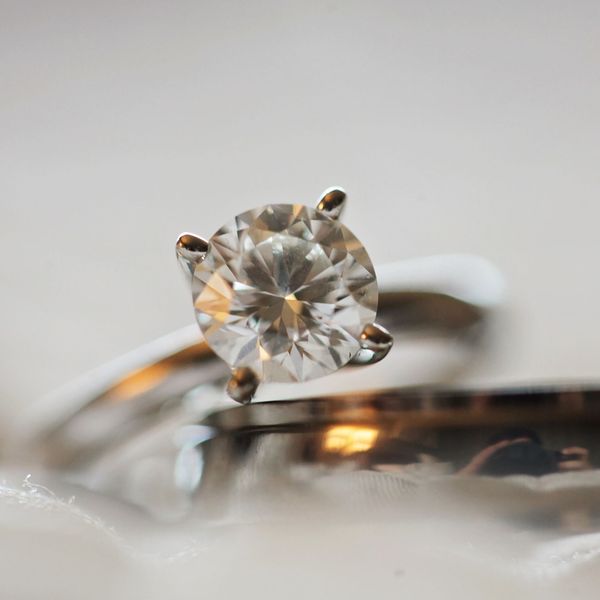
Diamonds are forever—or are they? In recent years, moissanite, a diamond alternative, has gained traction as a popular gemstone choice for jewelry. This rise in popularity raises questions: What are the key differences between diamonds and moissanites? Which is the better option for you? Let’s dive into the world of these two dazzling gems to understand their unique characteristics and help you make an informed choice.
The Origins: Natural vs. Lab-Created
Diamonds are formed naturally under intense pressure and heat deep within the Earth’s crust, taking millions of years to develop. In contrast, moissanites are lab-created silicon carbide crystals, originally discovered in meteorites but now synthesized to meet the demand for affordable gemstones. This difference in origin plays a significant role in their cost, rarity, and environmental impact.
Appearance and Sparkle: Which Shines Brighter?
At first glance, Diamond vs Moissanites appear strikingly similar. Both are clear, brilliant, and refractive, creating stunning light displays. However, there’s a key difference in their sparkle. Moissanites exhibit a higher refractive index than diamonds, meaning they can produce more fire and brilliance. This can be captivating, but some people find it too flashy compared to the subtle elegance of diamonds. It ultimately comes down to personal preference. Would you prefer a more vibrant and intense sparkle, or a classic and understated gleam?
Hardness and Durability: A Matter of Longevity
Diamonds are known for their unparalleled hardness, scoring a perfect 10 on the Mohs scale. This makes them incredibly durable and resistant to scratches, ideal for everyday wear in engagement rings and other jewelry. Moissanites, while not as hard as diamonds, are still impressively tough, with a score of 9.25 on the Mohs scale. They can withstand daily wear and tear but may require a bit more care over time. Are you okay with a slightly softer stone if it means saving money, or is ultimate durability your top priority?
Cost and Value: Stretching Your Budget
One of the most significant differences between Diamond vs Moissanites is cost. Diamonds are typically more expensive due to their natural formation, rarity, and cultural significance. Moissanites, being lab-created, are more affordable, often costing a fraction of a diamond’s price. This price difference can be a major deciding factor, especially for budget-conscious buyers. However man made diamonds, it’s worth considering the resale value and sentiment attached to diamonds. Would you prefer to invest in a timeless classic, or are you more interested in getting the most bang for your buck?
Environmental Impact: A Greener Choice?
In recent years, the environmental and ethical concerns surrounding diamond mining have prompted a shift toward lab-created alternatives like moissanites. The process of mining diamonds can have significant ecological consequences, while lab-created moissanites have a smaller carbon footprint. This environmental aspect is becoming increasingly important for consumers who want to make responsible choices. If sustainability is a priority for you, moissanites might be the better option.
Conclusion: Finding Your Perfect Gem
Choosing between Diamond vs Moissanites ultimately depends on your personal preferences, budget, and values. If you seek a classic, durable gemstone with a rich history and significant resale value, diamonds might be your best bet. However, if you’re looking for a more affordable, ethical, and environmentally friendly option with extra sparkle, moissanites could be the perfect choice.
When selecting a gemstone for an engagement ring or other jewelry, consider what matters most to you. Are you drawn to the timeless elegance of diamonds, or do you prefer the vibrant brilliance and affordability of moissanites? By understanding the unique characteristics of each gemstone, you can make an informed decision that reflects your style, budget, and values. Happy gemstone shopping!
